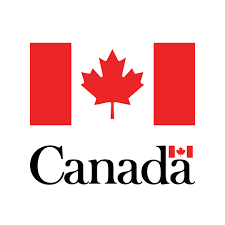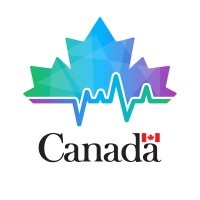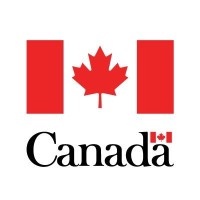
NRC — Advanced, non-linear optical imaging and microscopy (CARSLab)
At a glance
- No Condition
- Open Date : November 14, 2019
- Mining, quarrying, and oil and gas extraction
- Professional, scientific and technical services
- Health care and social assistance
- Canada
- Non-profit
- Public or Parapublic institution
- For-profit business
- All revenue ranges
- All organization sizes
- All groups
- Research
- Business owners / entrepreneurs
- Academia / students
- All structures
- All dimensions
Overview
Fee-for-service facility includes two-photon fluorescence, second harmonic generation and ultra-short pulse CARS microscopy.
Activities funded
Eligibility
Who is eligible?
Eligible companies for this grant must be involved in research and development activities related to microscopy and imaging technologies. They could include companies focused on bioimaging, material science, pharmaceuticals, or environmental analysis.
- Companies specializing in bioimaging
- Companies conducting research in material science
- Pharmaceutical companies engaged in R&D
- Organizations working on environmental analysis
Eligible expenses
The CARS microscopy grant is aimed at boosting research and development endeavors that leverage high-resolution, non-invasive imaging techniques. Eligible projects focus on using CARS microscopy to explore and analyze molecular structures for advanced scientific and industrial applications.
- Exploration projects in geology utilizing CARS microscopy to analyze mineral compositions in rock structures.
- Biomedical research employing CARS microscopy to study live cells and tissues without altering their inherent properties.
- Industrial application projects using CARS microscopy for chemical mixture analysis and imaging of oil deposits.
- Development of new imaging methodologies by combining CARS with other modalities like two-photon fluorescence and second harmonic generation.
- Collaborative projects focusing on advancing femtosecond laser technology for improved microscopy results.
Selection criteria
There are evaluation and selection criteria for the grant. The criteria include:
- Relevance of the proposed research to the goals of the grant
- Potential impact of the research in advancing knowledge and applications
- Qualifications and expertise of the research team
- Feasibility and soundness of the research plan
- Budget justification and cost-effectiveness
How to apply
Eligibility Check
- Visit the CARSLab website for more information on available grants.
- Identify the eligibility criteria to apply for a grant.
Appointment Setup
- Make an appointment with Roderick Paterson, Business Development Director, to discuss your research project and funding.
- Prepare a detailed file including a summary of your project, objectives, budget forecast, and expected outcomes.
Application Submission
- Submit your grant application by adhering to the deadlines set by CARSLab.
- Be prepared to present your project to the grant evaluation committee members if necessary.
Additional information
The CARSLab facility reflects advanced technological capabilities and industry-specific collaborations.
- The facility is supported by collaboration with leading industry partners, such as Olympus Corporation.
- This lab provides unique imaging capabilities that surpass standard two-photon or fluorescence microscopes.
- Operated by full-time specialists, ensuring expertise in both microscopy and laser optics.
- The facility supports a wide range of sample types, enhancing the research applications.
- The CARSLab incorporates cutting-edge femtosecond laser technology designed specifically for microscopy purposes.
- Continuous innovation and research are facilitated by the lab's integration into NRC's Quantum and Nanotechnologies Research Centre.
Frequently Asked Questions about the NRC — Advanced, non-linear optical imaging and microscopy (CARSLab) Program
What is the NRC — Advanced, non-linear optical imaging and microscopy (CARSLab)?
How much funding can be received?
What expenses are eligible under NRC — Advanced, non-linear optical imaging and microscopy (CARSLab)?
What is the deadline to apply?
Is the NRC — Advanced, non-linear optical imaging and microscopy (CARSLab) a grant, loan, or tax credit?
Who are the financial supporters of the NRC — Advanced, non-linear optical imaging and microscopy (CARSLab)?
Who is eligible for the NRC — Advanced, non-linear optical imaging and microscopy (CARSLab) program?
Who can I contact for more information about the NRC — Advanced, non-linear optical imaging and microscopy (CARSLab)?
Where is the NRC — Advanced, non-linear optical imaging and microscopy (CARSLab) available?
More programs like this

Industrial Research Assistance Program (IRAP) – AI Assist
National Research Council Canada (NRC)
Clean Technology Manufacturing (CTM) Investment Tax Credit (ITC)
Canada Revenue Agency (CRA)
Industrial Research Assistance Program (IRAP) — Youth Employment Program (YEP)
National Research Council Canada (NRC)
Mitacs Accelerate
Mitacs
ISED — Artificial intelligence (AI)
Innovation, Science and Economic Development Canada (ISED)
Global Innovation Clusters
Innovation Canada
IP for Business
Canadian Intellectual Property Office (CIPO)
ECO Canada — Student Work Placement Program
ECO Canada
Substance Use and Addictions Program (SUAP)
Health Canada